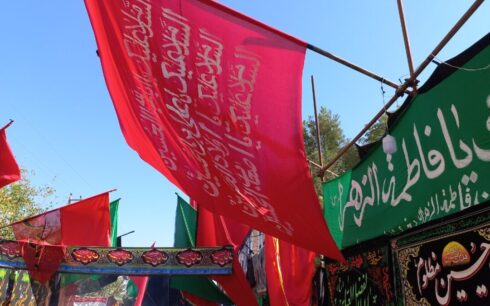KABUL, Afghanistan — Afghanistan on Monday marked the 33rd anniversary of the Mujahideen’s victory over the Soviet-backed government, a moment historically seen as ending one era of foreign influence but also beginning years of internal conflict.
On 8 Saur 1371 (April 28, 1992), Mujahideen fighters entered Kabul after 14 years of struggle, overthrowing the communist government led by President Najibullah, which had been supported by the former Soviet Union.
At a ceremony in Kabul, the Taliban commemorated the anniversary. Fasihuddin Fitrat, the Taliban’s chief of army staff, warned that they would resist any attempt at what he called a renewed “occupation” of Afghanistan. “If anyone considers reoccupying Afghanistan, we will stand against them and fight,” he said.
In the spring of 1992, Sibghatullah Mojaddedi was appointed as the interim president of Afghanistan and officially took over power from Fazal Haq Khaliqyar, Najibullah’s last prime minister.
In a speech at the time, Mojaddedi declared a general amnesty for those who had committed offenses under the previous regime, calling on Afghans to join the new Islamic government.
Mojaddedi remained in power for two months before handing authority to Burhanuddin Rabbani, leader of Jamiat-e-Islami, under agreements brokered in Islamabad. However, the entry of multiple Mujahideen factions into Kabul quickly triggered a brutal civil war.
Fierce infighting among Mujahideen groups not only destroyed much of Afghanistan’s infrastructure but also resulted in the deaths of tens of thousands of civilians and displaced hundreds of thousands more.
The civil conflict during the 1990s eventually paved the way for the rise of the Taliban, who seized Kabul in 1996.
At Monday’s event, Taliban officials criticized the behavior of the Mujahideen factions after the victory, blaming their infighting for the devastation that followed. Several senior Taliban figures, including acting ministers Noorullah Noori and Khairullah Khairkhwa, openly condemned the failures of the Mujahideen leadership after the fall of Najibullah’s government.
Notably, this year’s ceremony saw a lower turnout among the Taliban’s senior political and military leadership compared to previous years.
Meanwhile, opposition groups, including members of Jamiat-e-Islami, issued statements marking 8 Saur as a historic victory for the Afghan people but vowed to continue their struggle against Taliban rule. They emphasized their commitment to achieving democracy, the rule of law, and freedom for Afghanistan.





